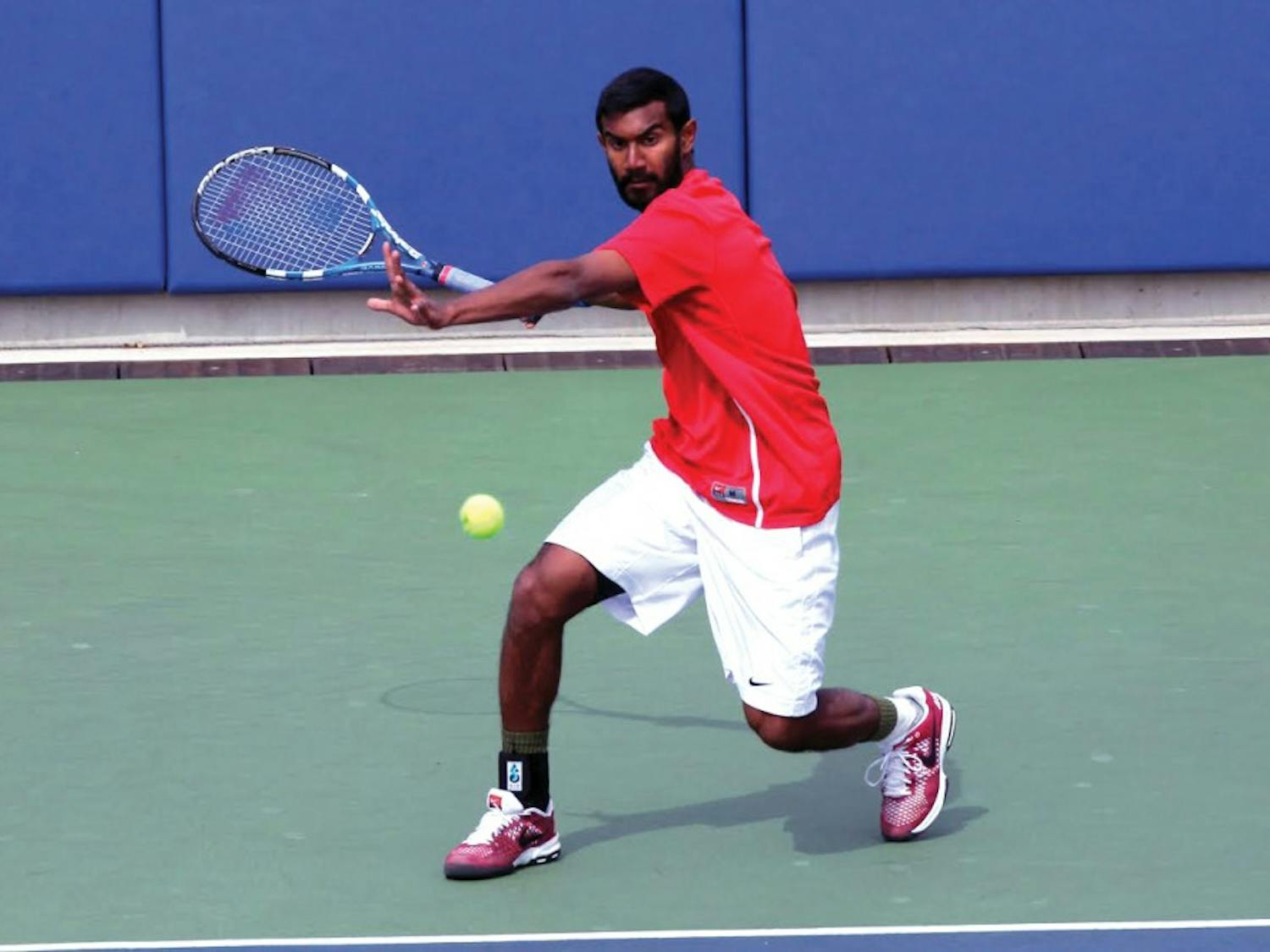Going into the Ivy League season, the Penn men’s tennis team was looking to contend for the title. Now, they are in danger of finishing at the bottom of the league.
This weekend did little to help the Quakers’ cause, as they were swept at home for the first time since Nik DeVore took over as coach four years ago.
“I’d be lying [if I said I was happy,]” DeVore said. “We didn’t come away with the W’s. When it comes down to it in the Ivy League, it is all about W’s.”
On Saturday, the Red and Blue lost to Harvard, 5-2, in a hard-fought match that lasted four and a half hours. On Sunday, they were defeated by Dartmouth, 4-3.
Against the Crimson, the Quakers (11-5, 1-4) looked confident after jumping out to a 1-0 lead by winning all three doubles matches.
However, the tide turned during an intense match at No. 1 singles between Penn captain Hicham Laalej and Harvard junior Jonathan Pearlman.
Despite winning the first set 6-2, Laalej lost momentum in the second set after a series of controversial calls went against him. His three-set loss provided the clinching point for Harvard.
“We had a ton of momentum against Harvard [after winning the doubles], but I’m going to be honest I think Harvard is a little better,” DeVore said. “Even on our best day, maybe we wouldn’t have come out on top.”
This loss will likely cause the No. 63 Quakers to be replaced by Harvard in the national rankings.
Against Dartmouth, losing the doubles point proved critical. The Quakers had match points at both No. 1 and No. 3 doubles, but ultimately lost both matches.
At No. 2 singles, Ivan Turudic led 6-4 in the first-set tiebreaker before losing the tiebreaker, 10-8. He went on to lose in straight sets.
One of the biggest problem areas for the Quakers this weekend was the bottom of the lineup, where Jason Lin and Jason Magnes lost both of their matches this weekend at No. 5 and No. 6, respectively.
In fact, Lin, Magnes and freshman Zach Katz — the three players fighting for the last two spots in the singles lineup — are all winless in Ivy League competition.
“We’re going to have to reevaluate what we’re doing down there,” DeVore explained. “I’m not saying we’re going to put someone new in there, but we’re certainly going to look at it.”
One player who the team is not likely to turn to at No. 6 singles is last season’s No. 1 singles player, Eugen Brazdil. The junior left the team earlier this season and has not been able to practice regularly since returning to the squad right before the Ivy season.
“He was honest with us [when he returned]," DeVore said of Brazdil. “He said ‘I don’t think I can contribute in singles.’”
Although the Red and Blue end the season with two difficult opponents — the reigning champions, Columbia and Ivy favorites Cornell — they are confident they can beat any team in the Ivy League.
“What it comes down to is on the given day, who is going to put in enough effort to pull out the win?” DeVore said. “The Ivy League is deeper than it has ever been in history.”
This is certainly true given that after the Dartmouth match, 13 of the 17 Ivy League matches were decided by a 4-3 score.
Because the Quakers have been mathematically eliminated from contention, DeVore believes his team has “really have nothing to lose” as they finish their season next weekend.
This article has been updated from its original version to accurately reflect several of DeVore's quotes, including bracketing [if I said I was happy] and adding the word "maybe" to the quote about Penn's potential to beat Harvard.








